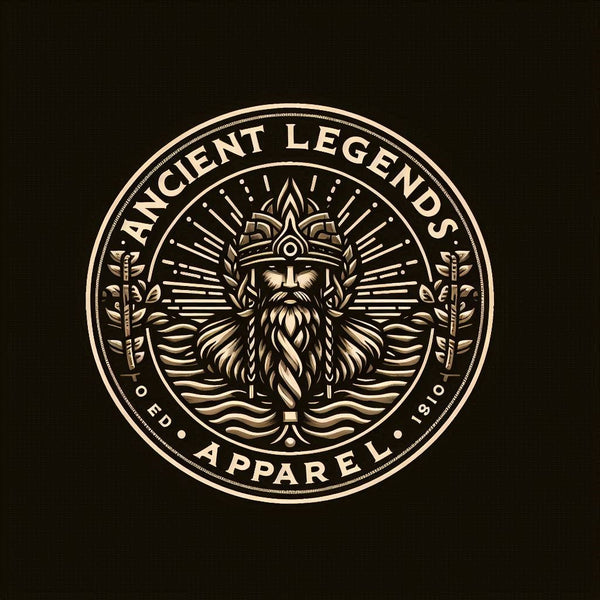Famous Quotes and Sayings from Gods & Deities
Karl FShare
INTRODUCTION
In the mythologies, folklores and histories that shroud the ancient world, gods and deities emerge as formidable figures of immense power and wisdom. Their words, adorned with knowledge and drenched in wondrous mystery, continue to echo down the centuries and to resonate with us today. As we traverse the landscapes of these ancient stories, we will uncover some of the most famous quotes and sayings from gods and deities; quotes that have breathed life into centuries-old myths, inspired civilizations and shaped the course of history. Here, we will unlock the allure of these celestial dialogues and peer into the spiritual and philosophical wealth that they promise.
ORIGIN AND CULTURAL CONTEXT
The origins of these quotes and sayings are carved deeply into the heart of ancient civilizations. They were born in a time when myths were historical records, gods rub shoulders with mortals, and celestial beings play a significant role in the fabric of life. We find roots in Hindu mythology, such as the timeless Bhagavad Gita that houses the immortal words of Krishna. In Greek mythology, the oracles of Delphi and tales of Zeus and Athena gave rise to many profound words. Similarly, Norse, Egyptian, and Roman mythologies have also produced their share of sacred texts that are sources of wisdom. These quotes often formed the foundation of the societal structure, moral philosophy and deeply imbued cultural beliefs of these civilizations.
THE LEGEND OR STORY
One iconic quote emerges from the heart of Hindu epic, Bhagavad Gita – a dialogue between the Prince Arjuna and God-incarnate Krishna. On the precipice of a catastrophic war, Krishna speaks to Arjuna saying, “Change is the law of the universe. You can be a millionaire, or a pauper in an instant” .
In Greek mythology, the Oracle of Delphi, believed to be the mouthpiece of the god Apollo, proclaimed "Know thyself" – a phrase that has etched itself into philosophical literature.
Norse mythology brings us the words of Odin, the Allfather, in Hávamál: "Cattle die, kinsmen die; oneself, too, soon must die, but reputation never dies for him who gets a good one.”
The Egyptian Book of the Dead, inscribed with the words of the deities like Ra and Osiris, offers us timeless advice – "Death is just the beginning".
From the Roman pantheon, Jupiter's words ring out: "Nothing can erase glory purchased with one’s own blood".
INTERPRETATIONS AND SYMBOLISM
Each quote bristles with symbolism, offering glimpses into the culture and mindset of the era. Krishna's words emphasize the transient nature of life. It was intended to teach humility, emphasizing on finding one's dharma (duty), and not be swayed by materialistic pursuits.
The Delphic maxim "Know thyself" was a warning against hubris, encouraging humans to understand their mortal limitations compared to the divine.
Odin’s passage, written in a time of constant war, instigates the importance of valour and the immortality of a good reputation.
The Egyptian belief in death as a new beginning signified their belief in the afterlife, a key component of their religious and cultural practices.
The Roman Jupiter's utterance highlights bravery and self-sacrifice, embodying the Roman military ethos and great pride in militaristic accomplishment.
COMPARISONS IN OTHER CULTURES
Comparatively, these divine quotes echo similar undertones in various cultures. The transiency of life spoken by Krishna reflects in Buddha's words about impermanence. The Egyptian regard for the afterlife parallels with reincarnation concepts across various Asian cultures. The theme of glory and valor bestowed by Odin and Jupiter is often mirrored in warrior codes from different tribes and civilizations like Bushido in Japan or Feudal chivalry in Europe.
MODERN REFERENCES AND POP CULTURE
Modern pop culture has seized these divine quotes and ingeniously interwove them into works of literature, films, music, and even video games. From the Delphic ‘know thyself’ echoed in Disney’s ‘Hercules’ to Krishna’s teachings, reinterpreted in 'The Matrix', to Odin’s wisdom finding its way into Neil Gaiman’s ‘American Gods’, these divine quotes continue to reverberate. They offer timeless wisdom, timeless narratives that inspire and influence generations to come.
LEGACY AND LASTING MYSTERIES
The legacy of these divine sayings is indisputable. Despite thousands of years, their impact is still palpable across cultural, theological, aesthetic, and philosophical landscapes. However, mysteries remain. Our interpretations, though insightful, could only see the surface of a deep ocean of mythical knowledge. As we continue to explore and interpret, the words of gods and deities will continuously provide compelling avenues of enquiry, pushing us to reevaluate our understanding of life and existence, one divine quote at a time. This endless quest for unraveling mythological wisdom propels the continual engagement with these ancient words, allowing them to live on, pulsating forever with mystical resonance and primordial truth.
